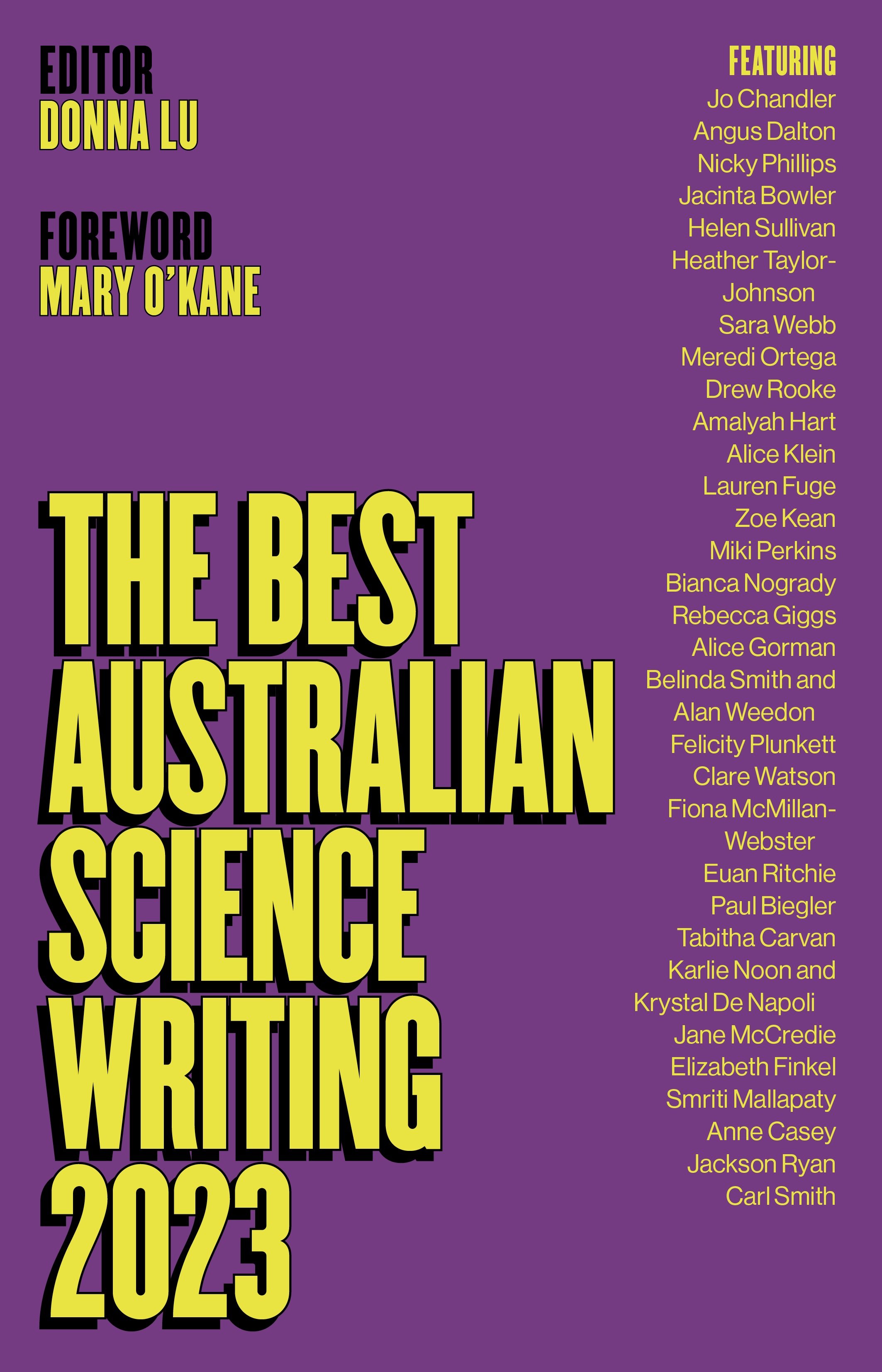The Best Australian Science Writing 2023 celebrates the entries for The UNSW Press Bragg Student Prize for Science Writing.
With the release of the new book we looked back at the winner for 2022 and found an article that is as relevant today as it was last year.
VIRAL SCIENCE
Olivia Campbell
Year 9
Presbyterian Ladies’ College
Melbourne, Victoria
To begin: a confession. Each day, I spend two hours and 48 minutes on my phone. I derive a masochistic pleasure from doom-scrolling infographics about climate change on Instagram. When I was 10, I burned through our curtains trying toturn my grandfather’s lighter into a soldering pen like I saw in 5-Minute Crafts, and it took me longer than I care to admit to realise that my sunburn couldn’t be cured by massaging it with honey. I used to write poetry, and essays like this one … but quiet contemplation is so much more lonely than letting YouTube tell me what to think.
Social media is a ubiquitous landscape of the modern world: one ruled by likes and views, overseen by some omniscient algorithm. Since the emergence of these platforms in the early 2000s, the way we communicate as a society has been entirely deconstructed and rebuilt, seemingly from scratch. And of course, when the very structure of our civilisation is so suddenly shifted, there are bound to be cracks in the foundation.
Any post on these platforms exists in an economy of clicks. Every story has to be sensational for us to bite; be reeledin. So what do we do, when the happenings of the world don’t make bright enough bait? We spray-paint minnows gold.
To illustrate: in late July, an article was published in the journal Hypertension titled ‘Association of nap frequency with hypertension or ischemic stroke supported by prospective cohort data and mendelian randomisation in predominantly middle-aged European subjects’. The next day, news.com.au released a piece of their own, provocatively titled ‘Do you like napping? You might also have a deadly heart condition’.
What happened here, to create such a vast chasm between these two articles – one that seems to broaden with every comment and reblog? Though this is a fairly trivial example, the real world impacts of misinformation and poor science communication are by no means inconsequential. Facebook yells that the Covid-19 vaccine is a hoax, a lie disseminatedby ‘Big Pharma’, an experiment for which we are the lab rats – ‘that will kill us’. So, thousands of people refuse to be injected … Some of them probably die.
In the worst of times, it can seem as if science communication and modern media are two wholly incompatible beasts – one repelling the other as similarly charged poles on a magnet. But the argument here is in fact a far more nuanced one.
Social media lends a certain virality to knowledge, unlike anything we have known before. While, as discussed above, this can often lead to the widespread dissemination of fake news, it also has the potential to allow important information to rapidly reach a whole demographic of young people aged 10 to 30. Somehow, videos on subjects ranging from reproductive healthcare to the latest developments from universities find them. Simply in the process of living, children are exposed to a trove of thought- provoking concepts. These are often in the same frame of reference as dance challenges and make-up vlogs, placing them in the context of fun, relevant and dopamine-inducing content.
Then, we see the algorithm giving people exactly the type of material that will make them stay on the platform – or, in less cynical terms, the kind of science they are truly interested in, as opposed to the musty case studies in their textbooks. The micro-format of posts essentially forces them to be accessible and digestible, distilling complex ideas into an easily understandable solution, and hence providing young people an entryway into the vast world of science.
Finally, the gatekeeping of academia is abolished in the world of modern media – a benefit to society being reshaped from the ground up. Anyone can speak on a topic that matters to them. People with disabilities are able to insert themselves into the conversation about what they want and need; students can talk with their peers rather than lecture them.
All of these factors serve to cast light on STEM as an endeavour – an expedition – as opposed to a table of figures to memorise. The impact this may have on growing minds, and their desire to pursue the sciences as a career, is potentially massive. And of course, this is a field where we need diverse perspectives and experiences to draw from, both inidentifying problems and developing viable solutions. In asking what science is in the modern world, this essay has revealed that there is no true answer … Or rather, that there are thousands. Some of these are ugly while others inspire, and far more find themselves somewhere in-between. But we cannot begrudge a field for evolving alongside its creators. Science is the basis of how we understand the universe, and this is simply what it will take for it to survive.
FIND OUT ABOUT THE NSW PRESS BRAGG STUDENT PRIZE FOR SCIENCE WRITING

The UNSW Press Bragg Student Prize for Science Writing extends the successful UNSW Press Bragg Prize for Science Writing for adults. It offers English, Maths, Design, Social studies, IT and Science students the opportunity to demonstrate their skills and interest in writing and experimentation.
The 2023 essay topic was: How does science and technology use or benefit from AI and how should we best navigate a future where AI is part of our everyday lives?



